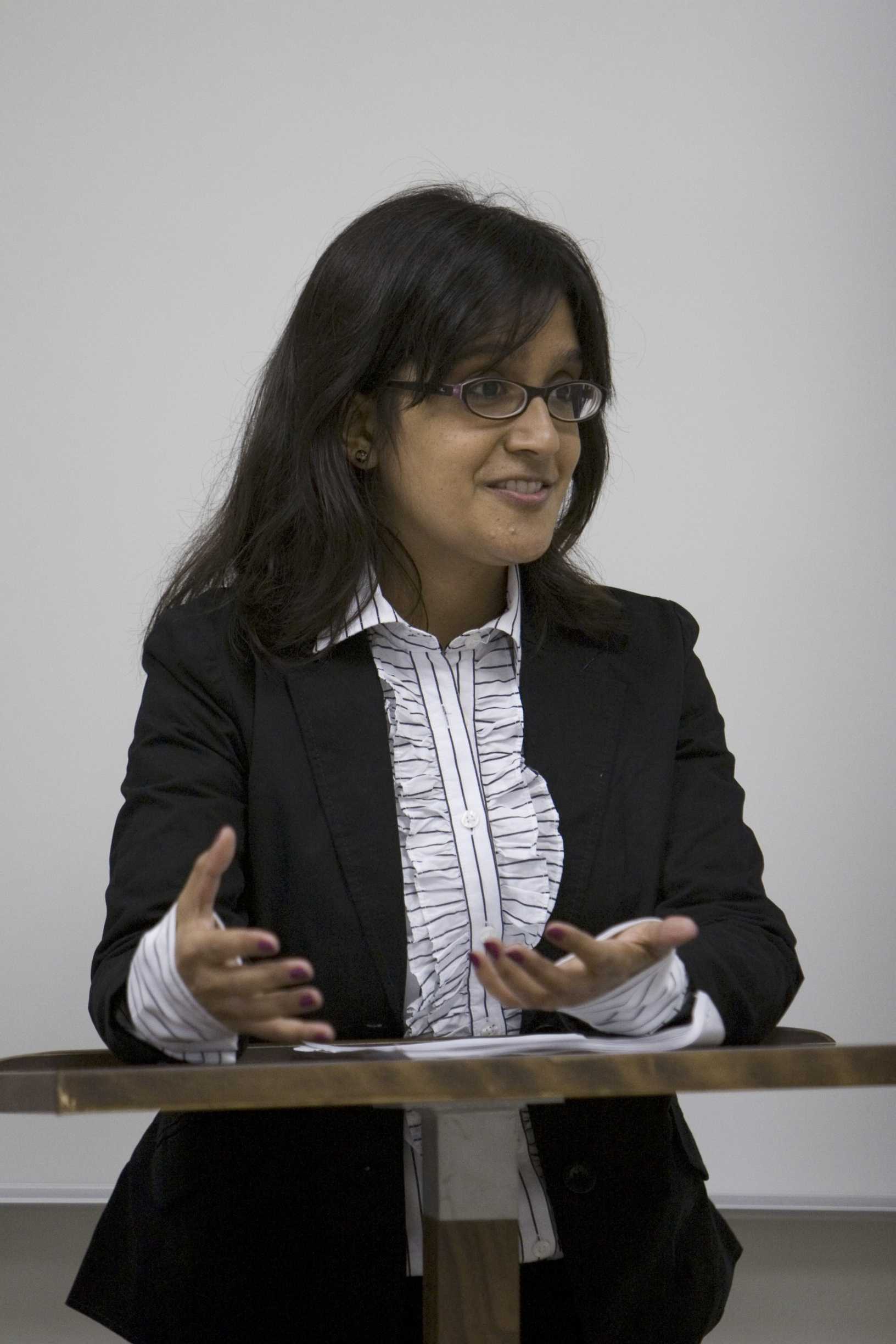Rather than pry into the gory details of the acts performed by a female sex worker in Tijuana, Shonali Choudhury, a Ph.D. candidate and guest lecturer from the UCLA School of Public Health’s Department of Community Health Sciences, has been investigating how sex workers cope with their everyday lives.
Choudhury spent a year researching the lives of women who sell their bodies — finding out if sex workers have told their mothers how they earn their money, discovering they take pride in providing for their children and learning how sex workers maintain friendships.
Choudhury’s presentation, “Reflections on Sisterhood: Empowering and Disempowering Relationships with Women Outside the Commercial Sex Industry in the Lives and Health of Female Sex Workers in Tijuana,” on Friday at Cal State Long Beach, revealed the results of 20 interviews she conducted at the Mary Magdalene Health Clinic in Tijuana.
“Relationships outside the world of commercial sex work are important to managing a positive self-image and negotiating health,” Choudhury said.
At first, she conducted casual interviews in the clinic’s waiting room, introducing herself to the women who came for STD tests and checkups. Choudhury then began to teach health classes at the clinic, helping establish the clinic as trustworthy and, as she put it, “a part of the environment.”
According to Choudhury, the clinic was a great place for interviewing the women because no men were allowed inside.
Choudhury said she was surprised to learn why the women became sex workers — many wanted to provide for their children, while others wanted to provide for their mothers.
In researching the women’s family and social relationships, Choudhury found that some women told their mothers and siblings of their profession.
Sadly, not all female sex workers can share their stories because many women move to Tijuana, leaving their family behind, she said.
“I don’t want people in my family knowing about my work,” revealed one sex worker to Choudhury. “They think I work at a factory. They don’t know what kind of work I do or where I work.”
Another sex worker commented on the double life she leads, keeping her work a secret from her friends.
“It would hurt me if one day they found out … My friends talk about those types of women without knowing that I am one of them,” the worker said.
Choudhury’s research suggested that when women try to live two separate existences, damaging effects are left on their lives. As a sex worker becomes more isolated in her social world, she begins to feel less assertive with her pimp, manager or boyfriend, and can wind up in more dangerous sexual scenarios.
“[A] lack of solidarity and rapport can make female sex workers feel further isolated in an already chaotic world, and most of their relationships become disempowering, resulting in less self-efficiency to control one’s life and work situations,” Choudhury said.
Choudhury said that sharing their stories with other women can improve their mental health.
“[There should be] resources such as forums, support groups and meeting spaces where women can share ideas and experiences, projects that encourage sisterhood by prompting interchange between women, and creating spaces that will foster empowering relationships between women,” Choudhury said.
Choudhury is an applicant for a faculty position as assistant professor of Feminist Health Studies within the department of women’s studies at CSULB.
***The name of the clinic was misprinted. The clinic is called The Municipal Clinic of the Departamento de Control Sanitario.




